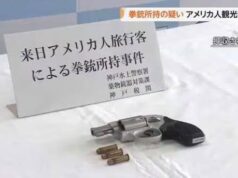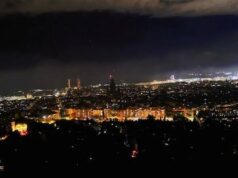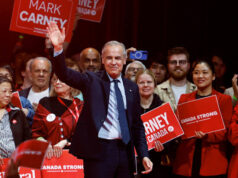The election results of 3 states of North east India is out. With a Majority in Tripura, a lead in Nagaland and better chances of National democratic Alliance government in Meghalaya has boosted an extra dose of positivity in the veins of Bhartiya Janta party’s planning committee. BJP’s performance in 3 states of North East and its chances to form government has, once again proved the confidence of Indian voters in Narendra Modi led government.
But this change is not a sudden incidence. Rather its’s a slow and steady process which was to happen one day. And there are several reasons behind it.In this article, we would be throwing some light over these reasons and help our readers understand the true story behind this.
Now, 6 states of North east India are going to have BJP led government but beside all the reasons for this government overthrow in these states, few important ones are listed below.
Jawaharlal Nehru and his diplomatic failure during Indo-China war,1962.
The most confidential top secret Henderson Brooks report regarding 1962 Indo China War, has blamed the then Prime Minister Jawaharlal Nehru for India’s debacle in 1962 India-China war.
This report has critically reviewed India’s defense preparedness and strategies during the 1962 war with China. Interestingly the website http://www.nevillemaxwell.com/ has been smartly blocked by the Government.
The report critically analyses the Forward Policy forced by the Then Prime Minister and the Defence Minister Krishna Menon. The report clearly alleges the failure of political leadership of that time as the most significant reason of India’s defeat in 1962 Indo China war. The Report also suggests that it was not China, but then Prime Minister Jawaharlal Nehru and his Defence Minister V K Krishna Menon’s arrogant belief that they would solve the crisis through diplomacy and that China would not dare attack India despite the latter’s ‘Forward Policy’.
A meeting, however, was held in the Prime Minister’s office on 2 November, 1961 and was attended amongst others by the defence minister, intelligence bureau. It appears that the DIB was of the opinion that “Chinese would not react to our establishing new posts and that they were NOT LIKELY TO USE FORCE AGAINST ANY OF OUR POSTS EVEN IF THEY WERE IN A POSITION TO DO SO”.
This was contrary to the military intelligence appreciation, as brought out in the Conclusion of Army HQ annual review, which clearly indicated that the Chinese would resist by force any attempt to take back territory held by them.”
Maxwell, who wrote a controversial account of the reasons that led to India’s defeat in his work, India’s China War, says on his website that he has always had access to the report and had waited for it to be declassified. He says he has now decided to put a large part of the report in the public domain because of India’s unwillingness to release it, says the report.
The report impeaches the highest levels of the government, from the PMO of then Prime Minister Jawaharlal Nehru and the Defence Ministry. It also criticizes the Forward Policy, which was enforced.
While the Nehru Government’s forward policy has been widely analyzed and criticized as being a contributor, Maxwell says on his website that the report holds India’s first Prime Minister personally responsible for the war. “The reasons for the long-term withholding of the report must be political, indeed probably partisan, perhaps even familial,” says Maxwell whose website revealing the eport has been blocked.
The explosive report has come at the time when Indian voter is all set to vote for the Lok sabha elections. The Report and revelations have provided enough cannon fodder against the dynastic Congress party and the failed Congress led UPA.
And this led to turmoil and uproar among the people of Arunachal Pradesh and Assam. Fifty years after the 1962 Sino-Indian war, former prime minister Jawaharlal Nehru’s role in it is still debated in Assam.
After Nehru’s speech on All India Radio (AIR) following the fall of Bomdila to the Chinese, many in Assam’s Tezpur felt he was not concerned about the Brahmaputra Valley. Some veteran Congressmen though believe the people of Assam misunderstood Nehru.
In his address to the nation on AIR on November 20, 1962, Nehru said, “Huge Chinese armies have been marching in the northern part of NEFA. We have had reverses at Walong, Se La and today Bomdila, a small town in NEFA, has also fallen. We shall not rest till the invader goes out of India or is pushed out. I want to make that clear to all of you, and, especially our countrymen in Assam, to whom our heart goes out at this moment.”
7 SISTER STATES:THE CONGRESS NEGLECTED PART OF THE NATION.
Being one of the most neglected regions of the Indian Union, overall state of affairs in northeast is quite alarming. The unattended issues and problems of the past are being accumulated, multi-layered and have become multifarious. Over and above, the mounting pressures of emerging challenges of rapid transformation need to be countered. The clock is ticking fast and situation in the region is very delicate which may explode anytime from now if not tackled carefully. At this juncture the old habit of alibis and hinting would only aggravate the maladies of the past and swell negative elements of the globalization. Instead, it is the time to think and act collectively.
The region has suffered from so much neglect and apathy that it seems next to impossible to catch up with the other parts of India. Having said that, I must confess here that I do not subscribe to the popular and very convenient view that the Northeast has remained backward simply because Delhi neglected it.
For years, a section of the leadership and the educated elite among the Northeastern states have become willing partners with the ‘exploiter’ class from Delhi and mainland India. And this process began not today but almost three decades ago. If Jawaharlal Nehru, was the over-sentimental benevolent dictator, bestowing largesse on the simple tribal folks, his daughter Indira Gandhi initiated and then perfected the art of buying over the Northeast. One illustrative example of Jawaharlal Nehru’s over-generosity’ in the early sixties came in Nagaland.
The Legendary AZ Phizo had just launched the insurrection in the Naga Hills in the then composite Assam. And the Naga National Council was demanding more autonomy to the area. As the first prime Minister’s cousin and former Governor of Assam, BK Nehru told me in an interview in 1990, “Jawaharlal had this sentimental thing about the Northeast tribals. When the Nagas were just demanding an autonomous district, he gave them a a whole state and that really opened the pandora’s box.”
It is of course debatable whether BK Nehru was right. The moot point to note is that the decision in 1963 opened the floodgates for similar demands from different parts of the Northeast. The formation of Mizoram and Meghalaya were a direct result of creation of Nagaland. And today, the demands for a separate Bodoland, Rabhaland, Missingland and Karbiland stem from that 40-year old decision.
Large scale misuse of central funds has widened the gap between the haves and the have nots, resulting in frustration among the youngsters. This frustration has often found expression in the swelling ranks of the militant organisations across the region.
Consider this:
1)56 years after Independence, six of the seven state capitals in the region are not connected by rail.
2)Itanagar, Kohima and Shillong do not have a proper airport even now.
3)The entire Northeast has to import essential goods worth nearly Rs. 2,500 crore annually since the states in the region have not modernised their agricultural practices.
4)Nearly two-thirds of India’s tea production, 60 percent of its plywood (till the timber-felling ban came) and a substantial part of its oil is produced in the region but not even a tiny percentage of the profits is re-invested here.
5)Vital sectors like education, health care and communication are still in the primitive state in the region.
STRINGENT ATTITUDE OF NARENDRA MODI LED GOVERNMENT TOWARDS CHINA.
Recent actions taken by the BJP government over Doklam issue against the disputed steps by China,has helped people of North East establish a feeling of trust in the recent government.The diplomatic strategy and its execution by the MEA,sent a message to the world and Indian citizen that this is not 1962 era.The government this time is neither negligent nor getting oppressed by Chinese deceitful plans.
This diplomatic and strategic victory has proved the attention of PM towards the neglected part of the country and awakened the world towards fraudulent China.
Amid the Doklam row and calls for banning cheap Chinese goods, the Centre is working towards tightening norms against cheap imports to protect domestic manufacturers.
Top sources in the government said data and inputs were being collected from different ministries that have seen a significant surge in imports from China.
“The government is looking at ways to protect Indian manufacturers by introducing non-tariff barriers against imports,” said a government official. Several government functionaries that HT spoke to indicated that there were three provisions that were being considered: Strict product standard norms for imports, new criterion for participating in tenders by public sector undertakings (PSU) and anti-dumping duty.
Earlier, PM Narendra was praised by World media for his strict words against Belt and Road Initiative(BRI).
During a Congressional hearing, Michael Pillsbury, Director of Center on Chinese Strategy at the prestigious think-tank Hudson Institute, told lawmakers that Modi and his team have been quite outspoken against Chinese President Xi Jinping’s ambitious project.
“The only statesman in the world who stood up to it yet, is Prime Minister Modi. He and his team have been quite outspoken, partly because the Belt and Road Initiative includes violation of Indian sovereign claims,” Pillsbury said.
Prime Minister Narendra Modi was the only significant world leader who dared to challenge the Belt and Road Initiative (BRI), China’s grand plan, often dubbed as the 21st-century Maritime Silk Road, to establish its influence in the Asia Pacific area and Central and Eastern Europe. Modi did the right thing by not teaming up with the 29 countries in the One Belt, One Road forum initiated by China in May 2017. Though China pushed hard for India to become a part of BRI, Modi was averse to it. On the contrary, the Indian prime minister is exploring all the possible routes to counter BRI, a project that has the potential to compromise India’s sovereignty and security.
Even top diplomats in the US are of the opinion that Modi is the right man to lead the fight against China’s colonialism. Quad (Quadrilateral Security Dialogue), a security partnership that between Japan, US, India and Australia to challenge China in the Asia-Pacific region, is the result of an aggressive approach taken by Modi and Japanese Prime Minister Shinzo Abe.
RECENT DEVELOPMENTS AND POSITIVE APPROACH BY BJP GOVERNMENT.
After around 50 years of negligence by the Congress dynasty and sidelining by various regional rulers, the new BJP government in centre has kept the promise of ex-PM Atal Bihari Vajpayee for the develpoment and advancement of North Eastern region of India.
Here are the list of development projects started as well as gifted by the new central government:
1)The second unit of the 726-MW power project in Palatana in southern Tripura was completed. State-owned Oil and Natural Gas Corporation has commissioned its biggest ever commercial power project at Palatana in southern Tripura.
2)Railway ministry gave the first ever train to Meghalaya.The train will run between Mendipathar to Guwahati.
Modi flagged off the train via remote control at a function at Railway Stadium in Maligoan in Guwahati.
Modi also laid the foundation stone of a board gauge railway line from Bhairabi to Sairang in Mizoram.
3)First train from Arunachal to delhi, Of 7 NE states, Itanagar is second capital to come on railway map
The Naharlagun-Delhi AC Express one that will cover 2139 kms every week between Naharlagun and the national capital.
4)The historic NAGA peace accord.
With an aim of ending insurgency in Nagaland, government on Monday signed an accord with key outfit NSCN(IM) which Prime Minister Narendra Modi described as a “historic” step to usher in peace in the state.
The pact was signed in the presence of the Prime Minister, Home Minister Rajnath Singh and National Security Adviser Ajit Doval by the outfit’s leader T Muivah and government’s interlocutor R N Ravi at the PM’s residence in Delhi.
5)The Centre had earmarked Rs. 4,200 crore for the railway project in the state besides Rs. 3,200 crore for the power transmission project.
6)Longest rail tunnel in north-east ‘scooped out’
The longest railway tunnel in the north-east on the newly constructed Lumding-Silchar broad gauge line in Assam has been scooped out, said Northeast Frontier Railway officials.
The tunnel is located near the New Haflong station building and goes under Haflong town. The 3,235-metre long tunnel connects the New Haflong railway station with Jatingalumpur railway station, said Md. M.M.Y. Alam, senior public relations officer, North East Frontier Railway. He added that it is considered one of the most important tunnels in the 210-km broad gauge track.
7)Prime Minister Narendra Modi inaugurated the Dhola-Sadia Bridge, the country’s longest river bridge, over the Lohit in the eastern most tip of Assam connecting Arunachal Pradesh.
This is Rs 2,056 crore strategic bridge at Sadia in Assam’s Tinsukia district.The 9.15 km long bridge is 3.55 km longer than the Bandra-Worli Sea Link in Mumbai. It has a three lane carriage way and connects Sadia town in Assam’s Tinsukia district with Dhola village in Arunachal Pradesh across the river.
“This bridge will now be known by the name of Bhupen Hazarika, the son of Brahmaputra who enchanted the world with his voice,” said Modi.
NEW,YET INCAPABLE LEADERSHIP OF CONGRESS.
Every election appears to be a game of snakes and ladders for the Congress with the same result. After every throw of the dice, the party gets bitten by a snake and falls to zero or somewhere close to it. The Bharatiya Janata Party (BJP), on the other hand, takes the ladder to go from nothing to victory.
Relegated to the political margins in Tripura and Nagaland for decades, the Congress’s failure to open its account completed the party’s decimation in the two north-eastern states.
Infighting, lack of resources, a non-visible central leadership, a lacklustre campaign and the perceived tacit understanding with the Left appeared to have cost the Congress dear in Tripura in the elections.
In Tripura, the Congress’ vote base shifted to the Bharatiya Janata Party (BJP). The fall is stunning, for it had a vote share of 36.53 % in 2013 when it contested 48 seats and won 10.
Congress president Rahul Gandhi addressed just one election meeting in Tripura on the last day of the campaign on February 16. Polling was held two days later.
State Congress leaders had complained about the lack of interest on the part of the general secretary in charge of North East, CP Joshi, in the party affairs in Tripura.
In Nagaland, the Congress was never in the game. It not only struggled to find candidates, but also failed to provide adequate resources to fight the elections.
A fund crunch also forced the Congress to withdraw five candidates, leaving 18 in the fray. In 2013, the party had won eight seats out of the 56 it contested and secured a vote share of 24.89%.
The problem with the narrative is this: After the Congress’ performance in Gujarat, the party was supposed to take the ladder, not grab the snake’s behind. It was expected to stick to the narrative of a resurgent Congress under a repackaged and rebranded Rahul Gandhi. But the dice continues to roll the same way.
Analysing a Congress defeat is no longer rocket science. The only thing that can be said about it is this: When you do the same thing the same way, the outcome will not change, even if you keep trying till kingdom come. The Congress has perfected the art of losing, and in every election, it displays its expertise like a circus monkey repeating the same trick.
The Congress keeps responding to the BJP’s agenda, falling in the trap of playing catch-up. Presenting Rahul in a new package won’t do it for the party. It needs to present the whole party in a new package, especially for young and urban voters. And for that, Rahul will have to do better than playing with Pidi and tweeting about his vacations. He will have to understand India, find out what it wants, and sell that to the voters.
But the irony is that still the higher leadership of this grand old party is not ready to accept its shortcomings and its faults.They still continue to cover up the mistakes of new president and his lack of capabilities.




